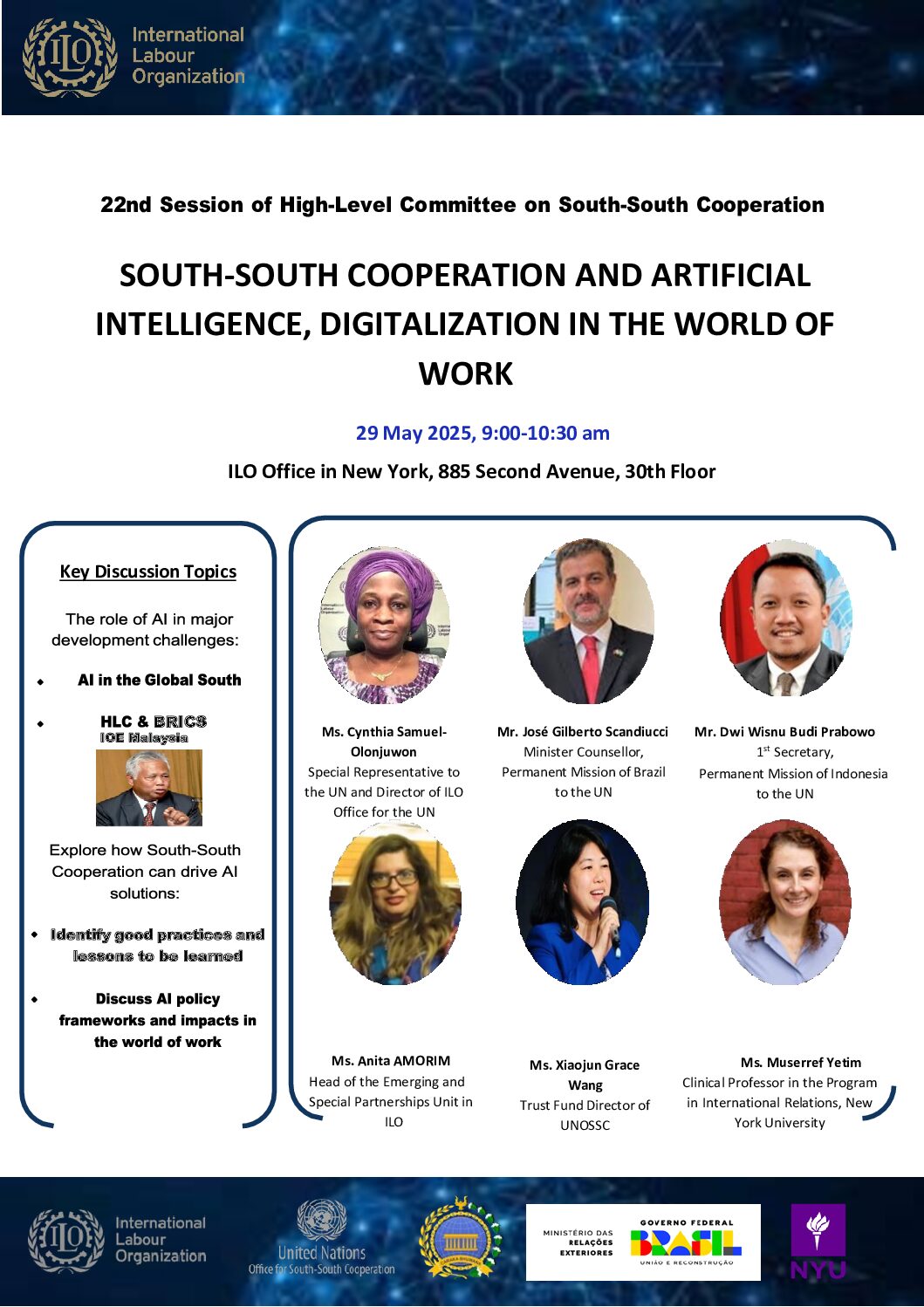
New York, May 2025 — As global discussions intensify around Artificial Intelligence (AI) and its impact on the future of work, the International Labour Organization (ILO) is preparing to reaffirm its commitment to South-South and Triangular Cooperation (SSTC) at the 22nd Session of the High-Level Committee on South-South Cooperation, convening next week at United Nations Headquarters.
At the heart of the ILO’s participation is a clear message: countries of the Global South are not merely adapting to global shifts in technology they are actively shaping them. By leveraging SSTC, developing countries are exchanging solutions rooted in their own experiences, building institutional capacity, and collaborating on labour policies that reflect their shared realities.
Representing the ILO, Anita Amorim, Head of the Emerging and Special Partnerships Unit, will emphasize the organization’s role in facilitating mutual learning and innovation between countries across Latin America, Africa, and Asia. Her upcoming remarks will stress the need for inclusive governance frameworks that extend beyond technical cooperation and promote deeper alignment with the Sustainable Development Goals. In the ILO’s view, SSTC is not a parallel process to North-South cooperation it is a critical pillar in global efforts to ensure that digital transformation benefits workers, not just markets.
The ILO’s presence in the general debate will be accompanied by a high-level side event, organized in collaboration with the Governments of Brazil and Indonesia, as well as the UN Office for South-South Cooperation (UNOSSC). The event will focus on how South-South and Triangular Cooperation can be harnessed to address both the opportunities and risks posed by AI, particularly in relation to employment, skills, and social protection.
Among the key participants is José Gilberto Scandiucci, Minister-Counsellor at the Permanent Mission of Brazil to the UN, whose intervention will highlight Brazil’s priorities as it holds the presidency of both the G20 and BRICS Employment Working Group. Brazil is expected to underline the importance of linking AI with just transitions, labour protections, and ethical governance, positioning itself as a leading voice for the Global South in shaping a fairer digital economy. Xiaojun Grace Wang, Deputy Director of UNOSSC, will also contribute to the session by outlining how South-South partnerships can accelerate the adoption of inclusive digital infrastructure and institutional readiness across regions. Her perspective reinforces the growing recognition that innovation must be accompanied by strong governance and investment in public capacity if it is to support sustainable and equitable development.

The event will also serve as a platform for reviewing recent cooperation models emerging from BRICS and G20 contexts. Lessons from these forums, including policy frameworks on digital skilling and responsible AI use, are expected to inform further recommendations on aligning technology with social justice and labour standards. In parallel, the ILO will preview the upcoming second edition of the South-South University “Future Leaders in the World of Work,” to be held in Brasília in April 2025. This initiative aims to build a new generation of leaders equipped to manage just transitions in a rapidly evolving world of work.
As discussions unfold at the UN, the ILO will continue to advocate for development strategies driven by solidarity, not dependency. For countries across the Global South, South-South Cooperation remains not only a practical tool it is a political choice to build digital futures that are inclusive, worker-centred, and anchored in social justice.

